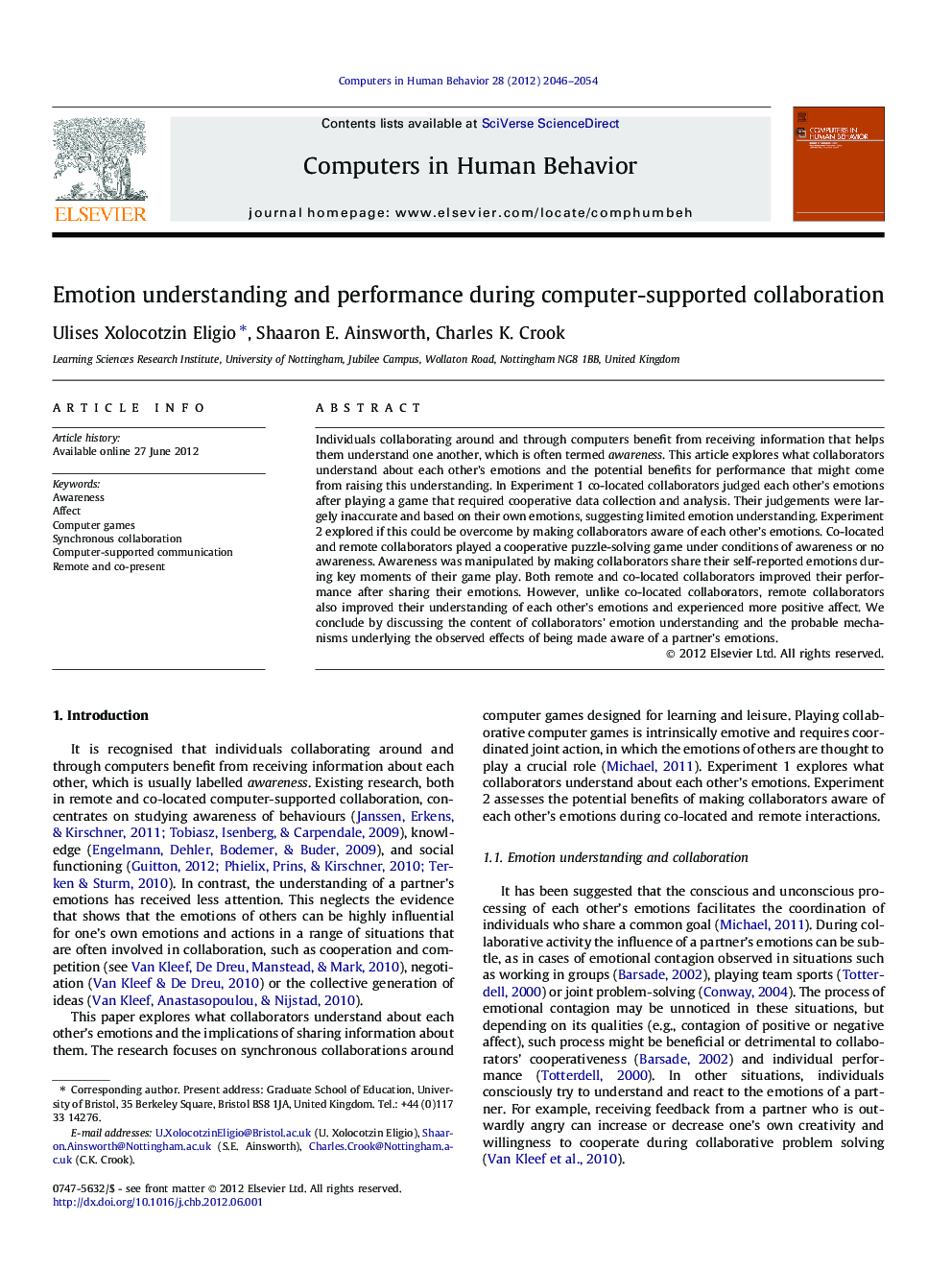| Article ID | Journal | Published Year | Pages | File Type |
|---|---|---|---|---|
| 351290 | Computers in Human Behavior | 2012 | 9 Pages |
Individuals collaborating around and through computers benefit from receiving information that helps them understand one another, which is often termed awareness. This article explores what collaborators understand about each other’s emotions and the potential benefits for performance that might come from raising this understanding. In Experiment 1 co-located collaborators judged each other’s emotions after playing a game that required cooperative data collection and analysis. Their judgements were largely inaccurate and based on their own emotions, suggesting limited emotion understanding. Experiment 2 explored if this could be overcome by making collaborators aware of each other’s emotions. Co-located and remote collaborators played a cooperative puzzle-solving game under conditions of awareness or no awareness. Awareness was manipulated by making collaborators share their self-reported emotions during key moments of their game play. Both remote and co-located collaborators improved their performance after sharing their emotions. However, unlike co-located collaborators, remote collaborators also improved their understanding of each other’s emotions and experienced more positive affect. We conclude by discussing the content of collaborators’ emotion understanding and the probable mechanisms underlying the observed effects of being made aware of a partner’s emotions.
► We studied collaborators playing computer games designed for education and leisure. ► Individuals inaccurately judged a partner’s emotions because of an egocentric bias. ► To overcome this, we required collaborators to report and share their emotions. ► This increased performance on the game when collaboration was remote and co-located. ► Only remote collaborators increased their emotion understanding and positive affect.
